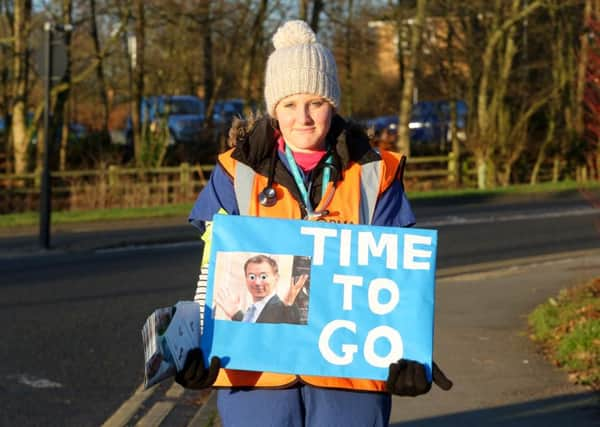Jayne Dowle: 111 helpline failure is emergency call for Jeremy Hunt's NHS


If this was India employing youngsters in a punishing factory, there would be an outcry and calls of “slave labour”. It is insidious to take this comparison too far, but I would say that the potential implications are even worse.
Here we are in a first-world country, a country which once had a National Health Service which was the envy of the world. Now we are at the mercy of an organisation so beleaguered, so bullied by government and so bereft of cash that young people barely out of school are being employed to give us life-saving advice.
Advertisement
Hide AdAdvertisement
Hide AdIt is reported that a number of 17-year-olds were drafted in to provide cover so that call-answering targets could be met. Call-answering targets? In the public’s eyes at least, this is effectively a first-response emergency service, not a company selling double-glazing over the phone. What is needed are properly-trained experienced medical staff, not the telephonic equivalent of a bunch of teenage babysitters.
However, this piece of information might shock you. Since the 111 service took over from its predecessor NHS Direct, it has not been necessary for call-answering staff to be medically-qualified. It seems that their function is simply to direct callers towards a pharmacy, GP or, in extreme cases, the A&E department. They make these vital decisions using tick-boxes on a computer screen. Those teenage staff on duty in the South West of England are only the tip of the iceberg. The whole service appears to be rife with ineptitude and lack of experience. And innocent members of the public are paying the price – with their lives.
That’s why I applaud the courage of the most recent whistle-blower Sarah Hayes who is a former senior call advisor for the same “teenage” helpline, which covers Devon, Dorset and Cornwall. She said she had to speak out because the service was “unsafe”. Ms Hayes reports from bitter experience. A call advisor working under her has come under fire for allegedly failing to spot the fatal signs of sepsis in William Mead, a one-year-old boy who later died. It is reported that the advisor did not ask enough “probing” questions to establish exactly what was wrong. An investigation has been launched, and rightly so. Imagine if that was your child?
Whatever your thoughts on this avoidable tragedy, do you think it will make any difference to the arrogant attitude of Health Secretary Jeremy Hunt? Junior doctors. GP contracts. And the debacle over 111. He presides over it all, yet does this man ever listen to, and act upon, anything that anyone tells him? I sometimes wonder just what has to happen before he will admit to himself – and to us – that under his watch the NHS is cracking up.
Advertisement
Hide AdAdvertisement
Hide AdSorry, but there is no other way to describe it. When Mr Hunt was hauled before the House of Commons to explain how the death of little William Mead might have come about, he still couldn’t fall on his sword.
He actually said that the helpline is overwhelmed with demand because it is “a victim of its own success”. The only victims here are members of the public who desperately need medical help and attention.
The report into the death of William Mead said that the service is “not sensitive enough” to pick up on such life-threatening conditions in children. As a parent, I can only ask – how do we know when a condition is life-threatening or not? We rely on medical professionals to make such a diagnosis for us.
Mr Hunt himself admits that 111 needs more doctors, staff need to be better trained and that the public are “very confused” about where to go to get medical help. If he knows this, why doesn’t he do something about it?
Advertisement
Hide AdAdvertisement
Hide AdI have lost count of the number of people who have told me that they just don’t bother ringing 111 because they can’t see the point. Nine times out of 10, they could find the advice they are given with a couple of judicious searches on the internet. That’s if they actually manage to get through to an advisor in the first place.
From the public’s point of view, one thing is clear: the NHS 111 helpline is not fit for purpose. It presents an urgent case for emergency surgery.